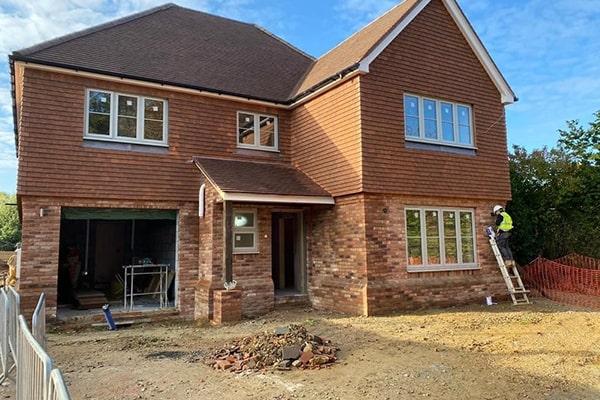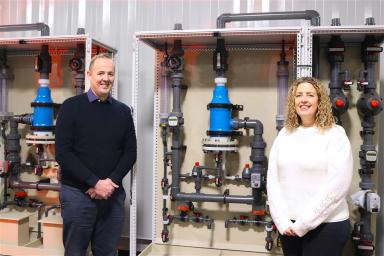Facing difficulties with raising finance, and caution from investors, this property developer decided to seek support via the Coronavirus Business Interruption Loan Scheme (CBILS) to continue with its house-building projects and protect the jobs of its employees.
Success Story
| Region/Nation | South East |
|---|---|
| Programme | Coronavirus Business Interruption Loan Scheme (CBILS) |
Read what the business had to say in this CBILS case study.
British Business Bank: Can you tell us what your company does?
Kirstie Ashton, director of Ashurst Homes: Ashurst Homes is a residential property developer of generally semi-rural properties in the South East, typically Kent, Sussex and Surrey. We’re a small but growing business and our USP is to create good relationships with our buyers to ensure their house move is as stress-free as possible.

How did COVID-19 affect your business, and why did this mean you needed a loan from the Coronavirus Business Interruption Loan Scheme (CBILS)?
During 2020 it became harder to raise property development finance outside CBILS. We always need to raise finance for our projects. COVID-19 also put off private investors.
It was clear, however, that the housing market must still fulfil the need for new housing on a long-term basis and so we wanted to continue building. And construction is one industry which can continue to operate during the pandemic, and we wanted to secure our employees’ jobs.
How did you find the application process?
With the help of our bank, the process was easy.
CBILS gave us the confidence to continue growing our business and building homes for the future within an uncertain environment. Our industry sector is one of those that can continue during the pandemic and so it seems appropriate that CBILS has helped us, which in turn guarantees jobs in our sector. - Kirstie Ashton director of Ashurst Homes
What do you think would have happened to your business if your application hadn’t been approved?
We may not have been able to buy the land for our latest project. The business would have continued but receiving this financial support ensured the banks would lend to us. It also gave us some security that if the project is held up due to coronavirus, we have some months when the loan is backed by government and we don’t have to pay anything. This gave us the confidence to carry on with the project even with the pandemic, thus ensuring we continue employing people.
Can you provide a specific example of how you used the funding to bring about a positive change (or changes) to your business?
CBILS gave us the confidence to continue growing our business and building homes for the future within an uncertain environment. Our industry sector is one of those that can continue during the pandemic and so it seems appropriate that CBILS has helped us, which in turn guarantees jobs in our sector.
Property development relies on the confidence of the developer and the lender and CBILS delivered this to both parties. That helps to makes sure that we, and the property development market as a whole, don’t contract unnecessarily, thus endangering jobs and the wider economy.
What advice would you give to other businesses applying for a CBILS loan?
Bank lending is always a part of property finance. The CBILS loan gave us some security that if we had to postpone building or selling our built houses, that the finance we have in place would help.
As always though, businesses need to do their research before entering into an agreement for any type of loan. Even though CBILS looks an easy way of raising money, it will still need to be paid back and must be part of the business’s long-term strategy, which COVID-19 may continue to disrupt for a while yet.


